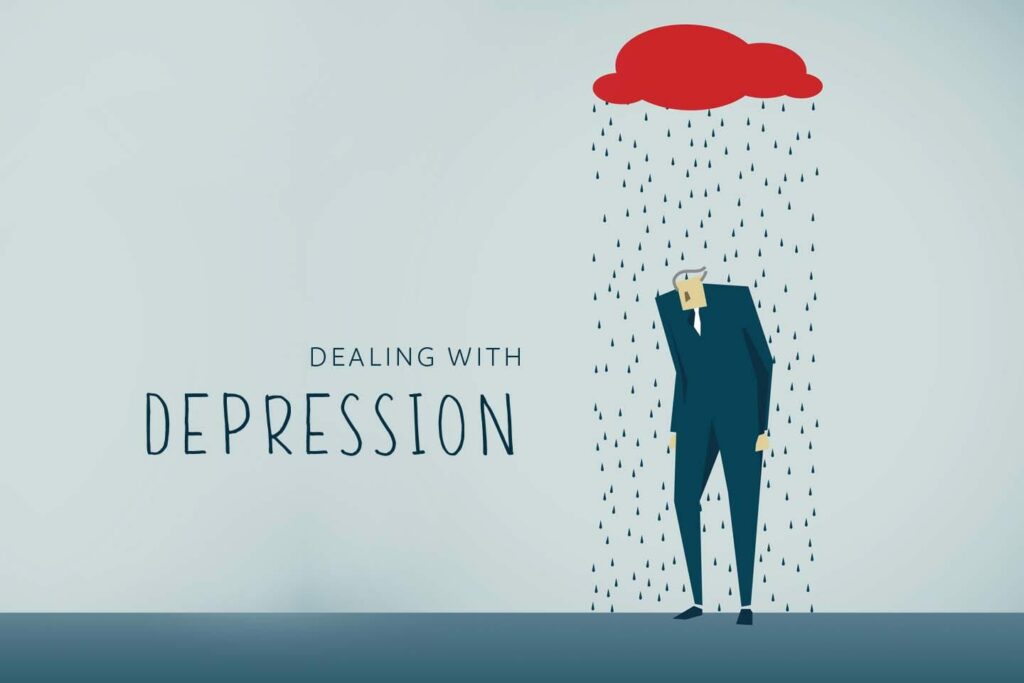Depression is a serious mental health condition that affects millions of people each year. Symptoms can include feeling sad or hopeless, losing interest in activities you once enjoyed, changes in appetite or weight, difficulty sleeping and feeling exhausted all the time. If you are experiencing any of these symptoms, it is important to seek help from a professional. In this blog post, we will discuss 14 ways to deal with depression.
Contents
- 1 What Is Depression?
- 2 Causes of Depression
- 3 Negative Impacts of Depression
- 4 Treatment of Depression
- 5 How To Deal With Depression?
- 5.1 Get Help From Professional
- 5.2 Talk To Someone You Trust
- 5.3 Participate In Group Therapy Sessions
- 5.4 Write Down Your Thoughts
- 5.5 Exercise Regularly
- 5.6 Limit The Amount Of Time On Social Media
- 5.7 Eliminate Negative Self-Talk
- 5.8 Avoid Drugs And Alcohol
- 5.9 Stay Positive
- 5.10 Make Sure You Are Getting Enough Sleep
- 5.11 Practice Meditation And Yoga
- 5.12 Avoid Isolation
- 5.13 Give Yourself Break
- 5.14 Practice Self-Care
- 6 Conclusion
- 7 A Word From Therapy Mantra
What Is Depression?
 Depression is a mental illness that causes people to feel sad and hopeless for long periods of time. It can affect how you think, feel, and behave. Depression is a common problem. Each year, about one in five American adults experience depression.
Depression is a mental illness that causes people to feel sad and hopeless for long periods of time. It can affect how you think, feel, and behave. Depression is a common problem. Each year, about one in five American adults experience depression.
There are many signs and symptoms of depression as well. Some of these are: feeling
- Sadness can be a symptom of depression, but sadness is also normal.
- Hopelessness: Hopelessness is when you feel like nothing will ever change for the better or that your life will never get any better than it currently is.
- Guilt: People with depression may feel guilty about things that they have no control over.
- Feeling like a failure: Depression can make you feel like you’re not good enough or that nothing ever goes right for you no matter what you do.
- Frustration, irritability, anger, and agitation: These are signs of frustration and irritability which could be caused by stress at work or school. Feeling angry at yourself because nothing is going well in life may also cause these symptoms.
- Loss of interest in activities once enjoyed such as sex drive decreases when one suffers from depression due to the loss of interest in things that would normally bring pleasure to them before the onset of this illness.
Causes of Depression
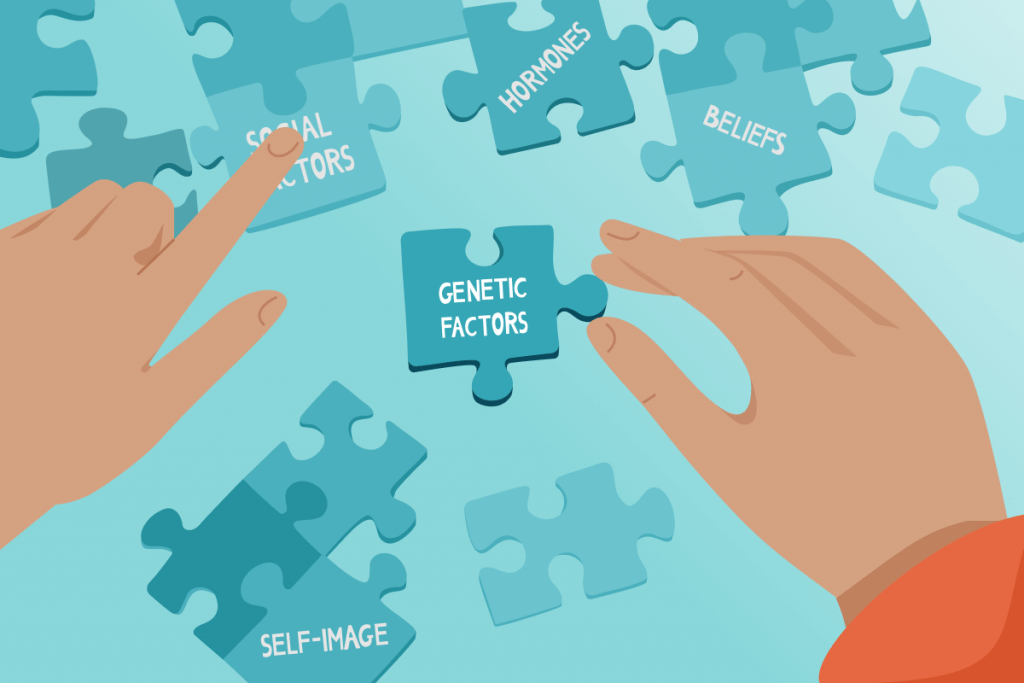
There are many causes of depression as well. Some of these are:
- Genetics: Depression can be passed down from parents to their children.
- Brain chemistry: People with depression may have different brain chemistry than people who don’t have depression.
- Environmental factors: such as stress, a traumatic event, or long-term problems like poverty or abuse can cause depression.
Negative Impacts of Depression
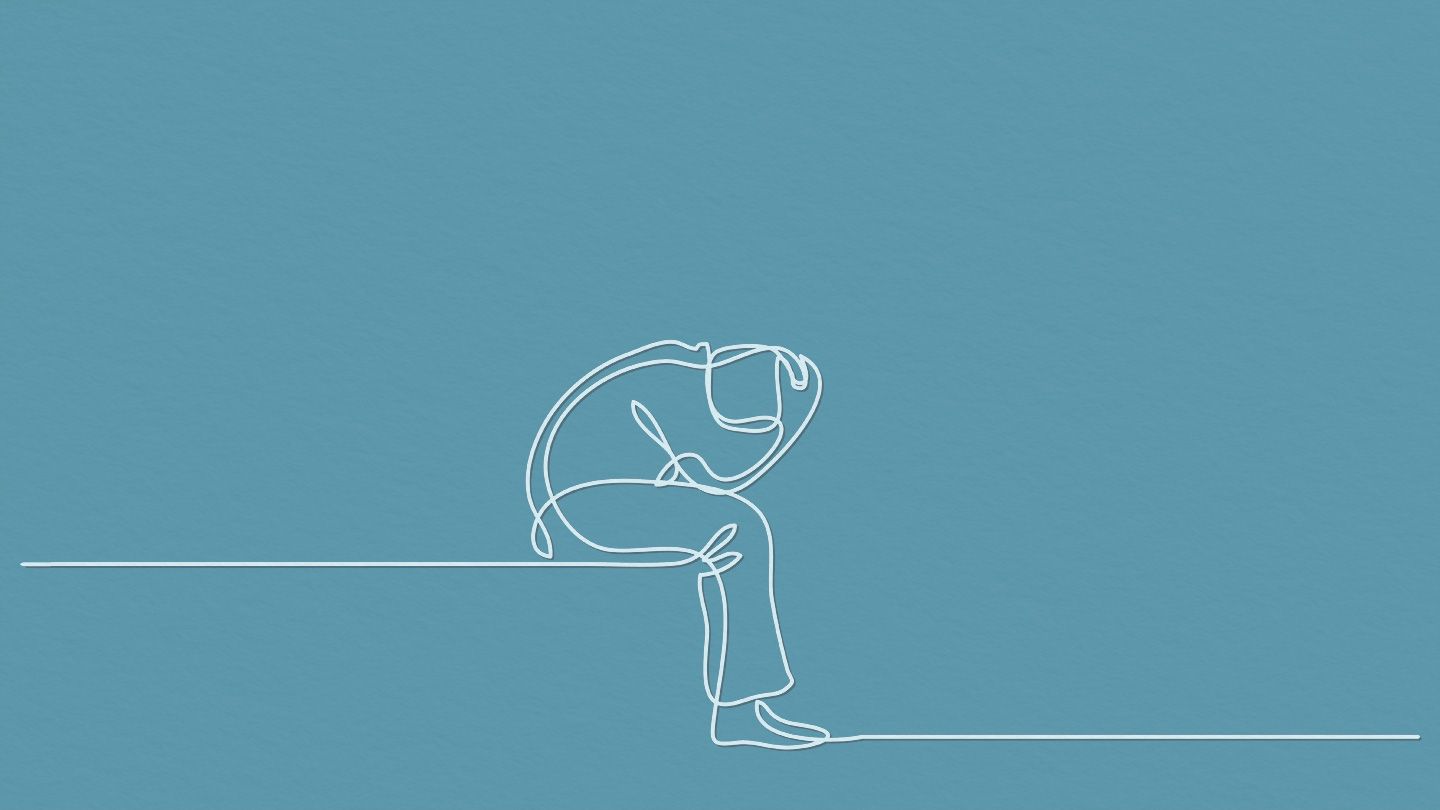
There are many negative impacts of depression as well. Some of these are:
Health problems: People with depression are more likely to have health problems, such as heart disease, stroke, and diabetes.
Problematic relationships: Depression can cause people to have problems in their relationships with family members, friends, or romantic partners.
Poor work or school performance: Depression can make it difficult to concentrate on tasks or remember information. This can lead to poor work or school performance.
Suicidal thoughts and behavior: People with depression may have thoughts about harming themselves or actually attempting suicide. Suicide is the tenth leading cause of death in the United States.
Treatment of Depression
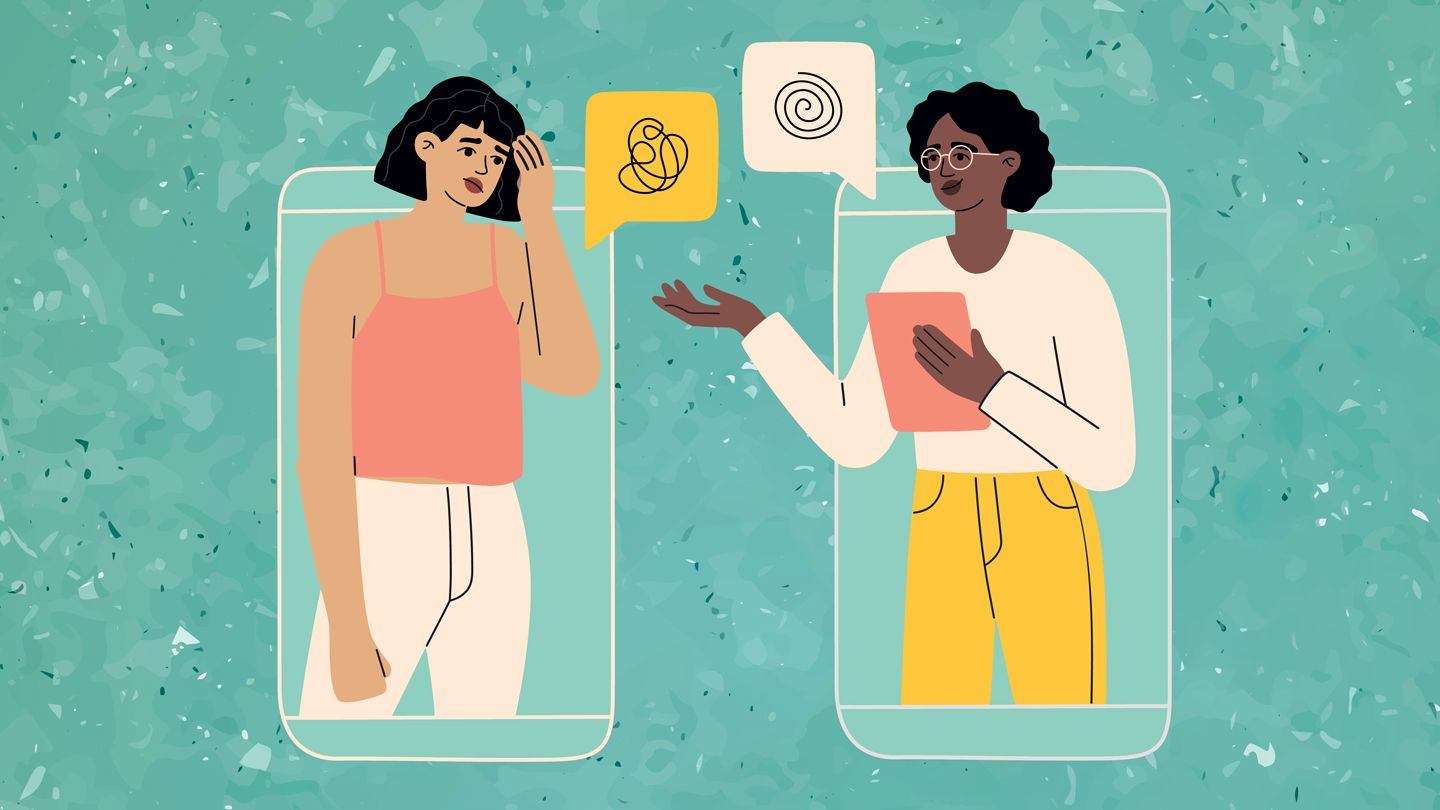
There are many treatment options as well for depression. Some of these are:
Medications
Medications can help improve mood and reduce symptoms of depression, but they don’t cure the illness.
Electroconvulsive Therapy (ECT)
Electroconvulsive therapy is an effective treatment that uses electrical currents to stimulate nerves in the brain to change their activity patterns. ECT has been shown to be very helpful in treating people with severe cases of depression who haven’t responded well or at all to other treatments like medication or talk therapy alone. This procedure isn’t used often because it comes with many risks such as memory loss after a few months following each session and seizures during recovery periods from anesthesia which need constant monitoring by medical staff before patients wake up.
Psychotherapy
Psychotherapy, also called talk therapy, is a treatment in which a person talks with a therapist about their thoughts and feelings. This can help people understand why they feel the way they do and learn new ways to cope with their depression.
Support Groups
Support groups are meetings of people who have similar problems and share their experiences with one another. This can be helpful for people who feel alone or don’t want to talk about their problems with someone they know.
How To Deal With Depression?
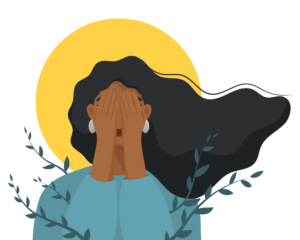 There are many ways that you can deal with depression if you think that you might be suffering from it. Some of these are:
There are many ways that you can deal with depression if you think that you might be suffering from it. Some of these are:
Get Help From Professional
The best way to deal with depression is by getting help from a professional. This can include talking to your doctor, seeing a therapist or counselor at school/work, joining support groups. These professionals will be able to listen and understand what you’re going through better than anyone else because they have dealt with similar situations before in their career so don’t hesitate if ever feel alone then go for them! They might just save your life one day.
Talk To Someone You Trust
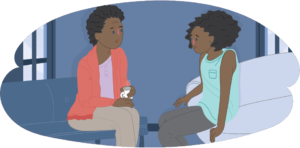 It’s important that when dealing with depression you not only get professional help but also talk to someone you trust.
It’s important that when dealing with depression you not only get professional help but also talk to someone you trust.
You can do this by telling a family member or friend about what’s going on in your life and how they might be able to support you through it. If there isn’t anyone that comes immediately to mind, then consider contacting one of our local crisis lines for more information about resources near them such as support groups or therapists/counselors who specialize in with dealing issues related to depression-like anxiety disorders (e.g., OCD).
Participate In Group Therapy Sessions
If you think that group therapy sessions would be helpful for managing some of the symptoms associated with depression such as social anxiety disorder then participate in those types of programs at school/work which have been shown to have positive effects on people’s moods over time.
Write Down Your Thoughts
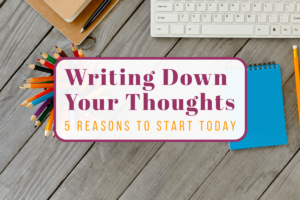 It is important that when you are dealing with depression, it might be helpful if you wrote down your thoughts in a journal every day or at least once per week so that they can see how their mood changes throughout the course of each day and then make any necessary adjustments based off what they notice happening most often (e.g., feeling less motivated after spending time on social media).
It is important that when you are dealing with depression, it might be helpful if you wrote down your thoughts in a journal every day or at least once per week so that they can see how their mood changes throughout the course of each day and then make any necessary adjustments based off what they notice happening most often (e.g., feeling less motivated after spending time on social media).
Exercise Regularly
If you think exercise would help manage some of the symptoms associated with depression such as social anxiety disorder then participate in programs at school/work which has been shown to positively affect people’s moods over time.
Limit The Amount Of Time On Social Media
Another way to deal with depression is by limiting the amount of time you spend on social media websites like Facebook, Instagram, Snapchat, and Twitter. This is because research has shown that spending too much time on these sites can have a negative effect on people’s moods and make them feel worse about themselves which can lead to increased levels of anxiety and depressive symptoms over time.
Eliminate Negative Self-Talk
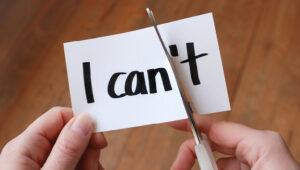 Depression can often be caused by negative thoughts about oneself so try your best to eliminate any type of self-defeating or pessimistic talk that might be going through your head at any given moment during the day (e.g., “I’m not good enough”, “I can never do anything right”).
Depression can often be caused by negative thoughts about oneself so try your best to eliminate any type of self-defeating or pessimistic talk that might be going through your head at any given moment during the day (e.g., “I’m not good enough”, “I can never do anything right”).
Avoid Drugs And Alcohol
It is important to avoid using drugs and alcohol when trying to deal with depression. This is because these substances can interact with the medications that have been prescribed to you in a negative way which might end up making your symptoms worse over time.
Stay Positive
 One of the most important things that you can do when trying to deal with depression is to stay positive and have hope that things will get better over time. This means looking for the silver lining in every situation, setting realistic goals for oneself, and taking things day by day. Remember that you are not alone in this and there are people who care about you and want to see you succeed.
One of the most important things that you can do when trying to deal with depression is to stay positive and have hope that things will get better over time. This means looking for the silver lining in every situation, setting realistic goals for oneself, and taking things day by day. Remember that you are not alone in this and there are people who care about you and want to see you succeed.
Make Sure You Are Getting Enough Sleep
You should always try to get an adequate amount of sleep. Sleep deprivation can increase your risk for depression, and it can make any existing depression worse. If you have trouble sleeping at night, try cutting down on the caffeine throughout the day, or avoid drinking caffeinated beverages in the afternoon to reduce your chances of having a hard time falling asleep at night.
Practice Meditation And Yoga
 You should also try to practice some sort of meditation or yoga. These activities can help you to reduce your stress levels, and they can help you to relax. This could be a great way for you to improve your physical health, as well as your mental health. Sometimes, exercise can also be helpful in reducing symptoms of depression.
You should also try to practice some sort of meditation or yoga. These activities can help you to reduce your stress levels, and they can help you to relax. This could be a great way for you to improve your physical health, as well as your mental health. Sometimes, exercise can also be helpful in reducing symptoms of depression.
Avoid Isolation
It is important to try to avoid isolation, especially if you are feeling down. If you isolate yourself from other people, it can make your mood worse. Instead, try to spend time with friends and family members, or participate in activities that you enjoy. This could help improve your mood and make you feel more connected to the world around you.
Give Yourself Break
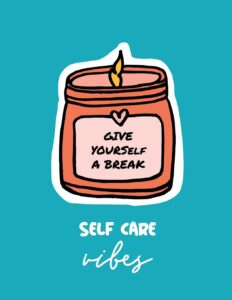 Try to give yourself a break. If you are feeling depressed, it is often difficult to be productive and accomplish everyday tasks. Instead of trying to do too much at once, try to tackle one thing at a time. Make a list each day of the things that you need or want to get done, and then try your best to complete them throughout the course of your day. This can help you feel more accomplished and confident in yourself while also helping reduce feelings of depression.
Try to give yourself a break. If you are feeling depressed, it is often difficult to be productive and accomplish everyday tasks. Instead of trying to do too much at once, try to tackle one thing at a time. Make a list each day of the things that you need or want to get done, and then try your best to complete them throughout the course of your day. This can help you feel more accomplished and confident in yourself while also helping reduce feelings of depression.
Practice Self-Care
One should always practice self-care. This means taking care of yourself both physically and emotionally. Make sure you are eating a healthy diet, getting regular exercise, and spending time outdoors. Additionally, make sure you are taking some time for yourself to relax and do things that you enjoy. This can help improve your mood and overall well-being.
Conclusion
Depression is a serious issue, and it should not be taken lightly. If you feel that you are struggling with depression, then you should make an appointment to see your doctor or therapist so they can help put together a plan for treatment. This may include medication, therapy, and/or lifestyle changes. The most important thing is to seek help if you are feeling down so that you can start to feel better.
You can also contact us for more information related to this.
A Word From Therapy Mantra
Your mental health — your psychological, emotional, and social well-being — has an impact on every aspect of your life. Positive mental health essentially allows you to effectively deal with life’s everyday challenges.
At Mantra Care, we have a team of therapists who provide affordable online therapy to assist you with issues such as depression, anxiety, stress, relationship, OCD, LGBTQ, and PTSD. You can take our mental health test. You can also book a free therapy or download our free Android or iOS app.
